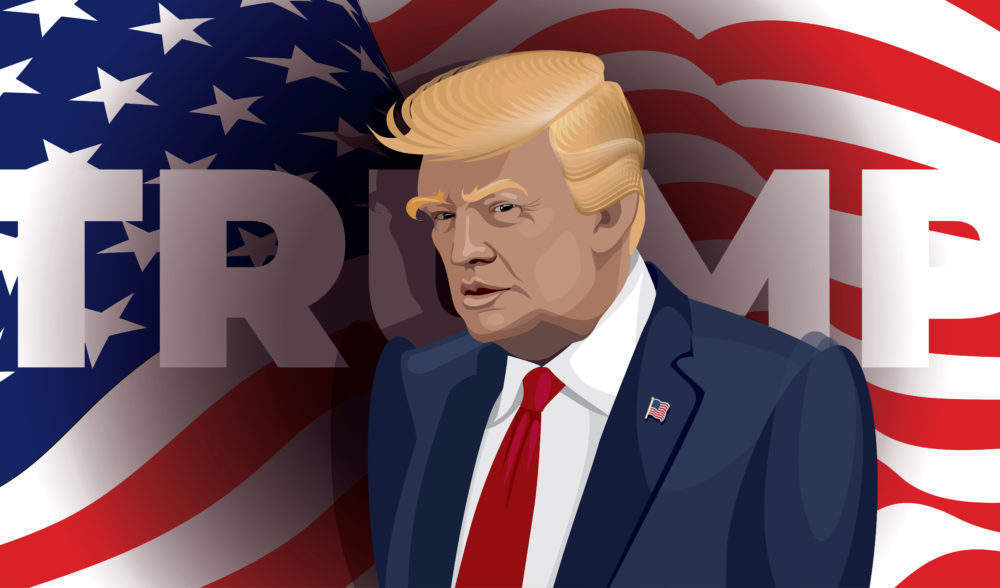
Will Trump grant more highly skilled H1B Visas?
Highly skilled worker visas are a pain point for the US tech industry. Emerging technologies including AI and quantum computing depend on a highly specialised and advanced skillset.
During his first term in office, Trump failed to enact policies to increase the H1B visa quota, despite bipartisan agreement that the US should grant more highly skilled worker visas.
While things may be different now that Silicon Valley power players have positions of power within the incoming Trump administration, H1B visas are only a priority for a certain cohort of MAGA supporters.
The H1B debate has exposed deep divisions within Trump’s following between his newly minted Silicon Valley friends and far right anti-immigration MAGA factions who claim that the H1B Visa system undermines opportunities for US citizens.
Some, like hardline MAGA original Steve Bannon, claim that the visa program is a cynical play by Big Tech for cheap highly skilled talent. They claim that H1B visas enable Big Tech companies to hire cheap overseas talent, train them on US soil for knowledge transfer which enables those same employees to be outsourced back to their country of origin as highly skilled offshore labour.
The opposing argument remains that the US will continue to see a brain drain of highly skilled foreign students from US universities back to their country of origin while the US struggles to remain globally competitive as its skills gap widens.
Will Trump repeal the Biden era Executive Order for safe and trustworthy AI?
The Republican National Congress’ (RNC) 2024 election manifesto explicitly cited an AI deregulation pledge, promising to repeal President Biden’s AI Executive Order for safe and trustworthy AI passed in October 2023.
“We will repeal Joe Biden’s dangerous Executive Order that hinders AI Innovation, and imposes Radical Leftwing ideas on the development of this technology. In its place, Republicans support AI Development rooted in Free Speech and Human Flourishing,” according to the RNC’s official 2024 Platform.
The Biden administration’s Commerce Department oversaw the creation of the US AI Safety Institute (AISI) in 2023 with a mission to identify, measure, and mitigate the risks of advanced AI systems. It remains to be seen whether Trump will disband the AISI as part of repealing Biden era AI policy and his promise of light-touch regulation for AI.
Does Trump have executive power to scrap TikTok ban?
The US Congress approved a US TikTok ban, in April 2024, ordering TikTok’s Chinese parent company ByteDance to sell its US TikTok operations or shut down
The 19 January deadline preceded President-elect Trump’s swearing into office by just a day.
After his November 2024 presidential election win, Trump said publicly: “I have a warm spot in my heart for TikTok because I won youth by 34 points. And there are those who say TikTok has something to do with it.”
Proponents of the ban allege that US TikTok provides the Chinese government with both the opportunity and will to access the data of US citizens through ByteDance’s US presence. The Supreme Court has spent the last week hearing arguments on whether to uphold the ban over these national security concerns.
On 19 January Trump said, “as of today, TikTok is back,” at an inauguration event in Washington. In a post on truth social on the same day, the President-elect outlined a scenario a “joint venture” in which the US would own 50% of TikTok’s US operations.
But at the time of writing, it remains unclear in what capacity Trump will use his presidential powers to address the TikTok ban.
Will Trump continue FTC’s mission to break up Big Tech?
The TikTok debacle raises the question of BigTech’s concentration of power in the US. Indeed, rumours of a US TikTok sale to X owner Elon Musk would only strengthen the case that Big Tech’s unchecked power needs reining in.
Biden appointee, Federal Trade Commission chair Lena Khan, sought to end the era of light touch regulation for Big Tech. While Vice President, JD Vance, has been vocal about the need for forced Big Tech divestment, Trump is seen to broadly favour a return to a less restrictive regulatory regime. Trump has Republican Andrew Ferguson, currently one of the FTC’s five commissioners, in his sights as the new FTC chair.
Will Trump uphold Section 230?
The title of Jeff Kosseff’s 2019 book describes Section 230 as “Twenty-six words that created the internet.” Section 230 of the Communications Decency Act of 1996 protects online platforms from being held liable for third-party content.
Social media platforms live or die by this piece of legislation. Without this law, the Cambridge Analytica scandal which saw Facebook accused of disseminating misinformation, allegedly affecting the outcome of the 2016 Presidential Election, had the potential to see Facebook founder and CEO Zuckerberg jailed.
Like Kosseff, many assert that without the law, social media platforms would never take the risk of disseminating anything that would make them liable for prosecution and, therefore, the social media industry would never have existed in the first place.
In May 2020, Trump issued an executive order aimed at limiting the legal protection offered by Section 230 and has, in the past, threatened to repeal the law. But since the launch of Trump’s own social media platform, Truth Social, which incorporates Section 230 into its user agreement, the president-Elect has not called for repealing the law.
In addition, Meta’s Facebook and Instagram owner, Zuckerberg, has fallen into line and Silicon Valley will surely put pressure on maintaining the status quo. But as ever, Trump’s views on this issue could change.







